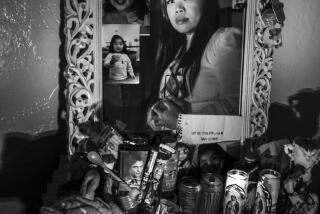When suicide strikes too close to home
- Share via
In the last few months, two people in our psychiatric community have committed suicide. They were known as patients to their therapists, but not to us. We knew them as staff. One was a psychiatrist, one a psychiatric nurse who finished his regular shift before killing himself.
There is something especially disturbing about the idea of mental health professionals taking their own lives. For one thing, it dispatches the comforting idea that knowledge is control. In fact, medical specialists have no corner on personal safety: Oncologists die of cancer, and cardiologists drop from coronaries. But suicide is different; not a mutation of nature or a fatty artery, but a volitional event. Unlike most cancers and cardiac arrest, it is thought preventable.
In our hospital, where we deal with depression and despair regularly, these staff suicides generated storms of feelings. The first thunderbolt, of course, was sorrow. The second was self-blame: Why didn’t we stop it? With all our training in mental illness, we never noticed compatriots in our own house who had life-ending disease. They worked side by side with us, shoulder to shoulder.
Our job is to notice. Why didn’t we see?
One of the myths about the psychiatrist is that none can hide from his powerful gaze, that it penetrates everyone it falls upon, leaving them transparent. In the hospital where I trained, the chairman of the Psychiatry Department was famous for his diagnostic skills. We sat in low facing chairs the day he interviewed me for a staff residency job, chatting about simple things: dogs, gardening, parking tickets. But the minute I left, I knew, I knew, that I had become naked before him. I knew he had tricked me into undressing, and had seen my deepest, most quietly protected abnormalities. (It was, I concede, a power I coveted.)
It took years of talks with him to realize that he simply likes dogs, plants and taking risks with parking meters. It also took years to realize that these presumed X-ray powers would not be mine because they didn’t exist.
After all the practice and reading and interviewing and analyzing and exhaustive experience that goes into the training of psychiatrists, we see only what someone wishes to reveal. Concealment is always possible.
It’s easy to hide our most frightening thoughts from others. Still, the impossible job of the patient -- even a patient whose pain leaves little energy to hope and less to speak -- is to give the therapist a chance to help. When the patient is herself a professional, responsibility for disclosure is even greater. Her training does not save her from becoming overwhelmed in the face of depression, trauma or catastrophic loss. She is not responsible for having greater emotional health than anyone else. (How could she be guaranteed that, when oncologists get cancer too?) She is not responsible for preventing her hopelessness.
But she is responsible for seeking treatment when she cannot treat himself. She is responsible for disclosure and survival. We have a professional obligation to take what we prescribe, whether it is pills or talk or hospitalization. There is pain beyond pain when someone trained to save lives takes his own. It gives the lie to our very business.
None of these reactions surfaced at the memorial services. Instead, there was the traditional solace-seeking, the recollecting and the utter loss of what to say to families who would live into eternity with their own sorrow and self-castigation.
In our field, we treat despair, resignation, self-hatred. In our lives, we also wrestle with them. But when we become too weakened to wrestle alone, which is only human, we must find help. It is what we owe other patients, in the profession we have chosen.
*
Dr. Elissa Ely is a psychiatrist at a state hospital in Massachusetts.


